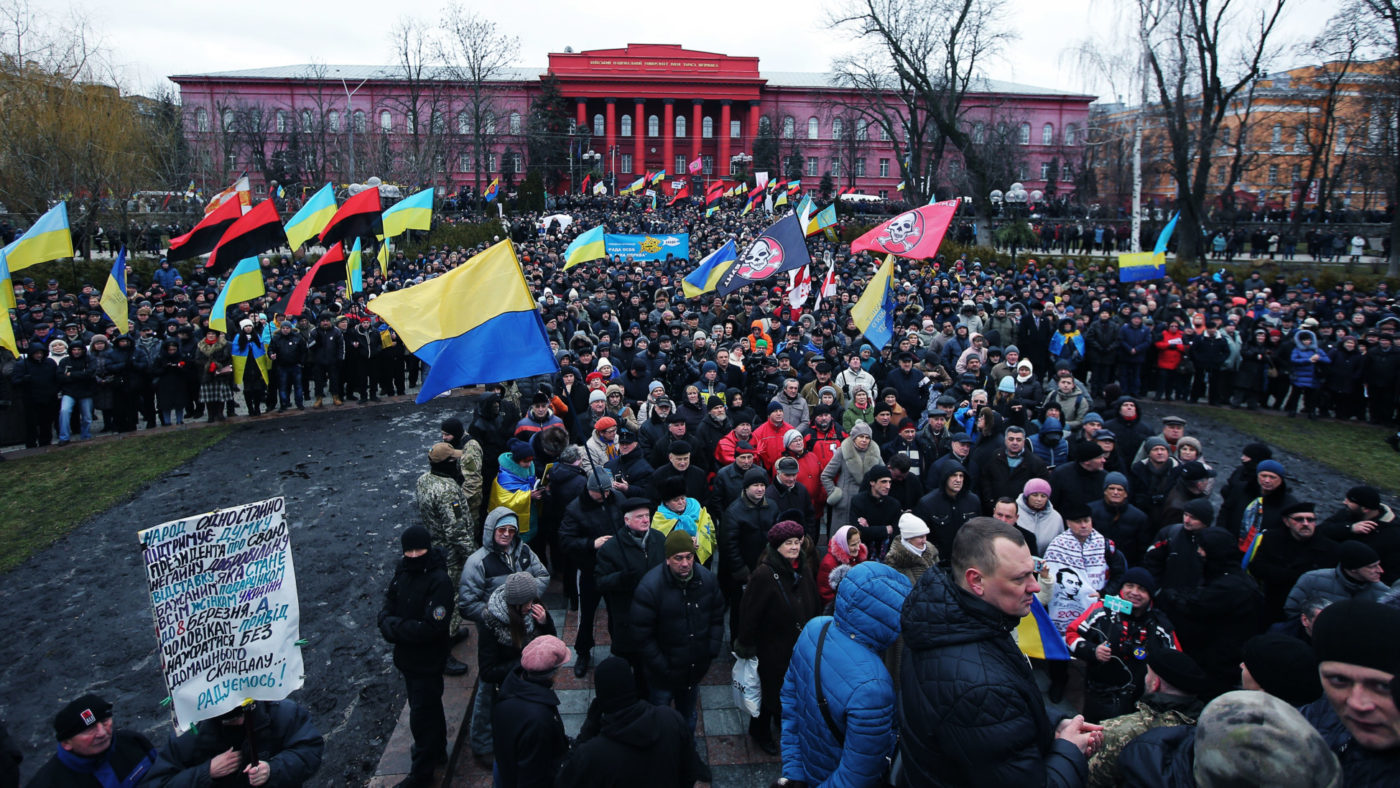When Ukraine’s economy imploded after the Russian annexation of Crimea and occupation of the Donbass, the West stepped in to shore up the country’s economy. The IMF tabled billions of dollars of loans to the country’s fledging government which had replaced the corrupt regime of Viktor Yanukovych.
These loans, negotiated with the help of US vice-president Joe Biden, came with certain strings attached; the creation of an anti-corruption body, the National Anti-Corruption Bureau (NABU), backed up by a Specialised Anti-Corruption Prosecutor’s Office (SAPO). The thinking was that these independent bodies would be able to challenge the graft which has seen so much of Ukraine’s wealth squirrelled out of the country (often turning up in London) and to make sure the IMF’s loans did not suffer the same fate.
Recent events in Ukraine show just how difficult a task these groups face, as the endemic corruption in Ukraine which has tainted the previous administrations of Yulia Tymoshenko and Yanukovych rears its head again.
The most recent example is the arrest of the mayor of Odessa, the neo-baroque port city described in Misha Glenny’s novel McMafia as “an irresistible magnet for crime and corruption”. A stalwart of the city council, Gennady Trukhanov was elected mayor of the Odessa in the aftermath of the revolution in 2014. Prior to this he ran a private security company and was suspected of involvement with some of the city’s leading mafia figures, according to one Italian police report.
Trukhanov was picked up by the NABU at Kiev airport charged with embezzling funds from projects to repair a highway and refurbish Odessa airport. The SAPO asked that he be held in custody with a bail set at 50 million hryvnas (£1.3 million). Not extortionate, but presumably pretty hefty for someone who has been drawing a public salary for the last 10 years.
Instead, a day later Trukhanov was released without bail, his good behaviour vouched for by the Ukrainian MP, Dymytro Golubov. Golubov is himself wanted by US law enforcement for credit card fraud and was released from a spell in prison in 2005. He is also an ally of Ukraine’s current President Petro Poroshenko.
“Ukraine has done just enough to get the IMF loans,” says one advisor to the post-Maidan government. “But it’s still pretty similar to Yanukovych’s time. People around Poroshenko are creaming off the money and living in fear that there will be a genuine anti-corruption body.”
The NABU have had some successes, forcing the resignation of Ukraine’s tax chief Roman Nasirov on embezzlement charges, but signs they face an uphill struggle abound. The lenient treatment of Trukhanov is in marked contrast to the recent extradition of Mikheil Saakashvili, the former Georgian president and sometime governor of the Odessa region. Saakashvili is far from perfect but he did point out the corruption of both the Odessa local government and the shortcomings of President Poroshenko. Last week he was arrested by masked men at a restaurant in central Kiev and deported to Poland.
As Saakashvili has just witnessed, the anti-corruption reforms are caught in a turf war between the independent investigators the IMF’s loans hinged on, and Ukraine’s traditional state apparatus, the SBU intelligence agency and the General Prosecutor’s Office. Both heads of these departments are in the gift of the Ukrainian president and they have been making their presence felt, raiding the homes of NABU employees and their families, and orchestrating the extradition of Saakashvili.
The combination of the state’s investigators and legal apparatus mean that the IMF’s cash to stabilise Ukraine, and by extension Poroshenko’s government, are unlikely to find the right targets. “The Prosecutor’s Office is still an old style Soviet bureau in the pocket of Poroshenko,” says the ex-government advisor. “They (NABU) can bring a case to court but the case can still collapse as there is no independent judiciary. Poroshenko is doing his utmost to keep all these things at bay.”
On Wednesday, Transparency International released their annual corruption index. Despite the IMF’s billions, Ukraine is still hovering below countries like Russia and Pakistan. The belief among many Ukrainians is that politicians use their position to take as much cash as they can before the music stops and a new administration comes in. As Poroshenko holds out on Ukraine’s independent judiciary the question is whether the IMF can break this cycle.


